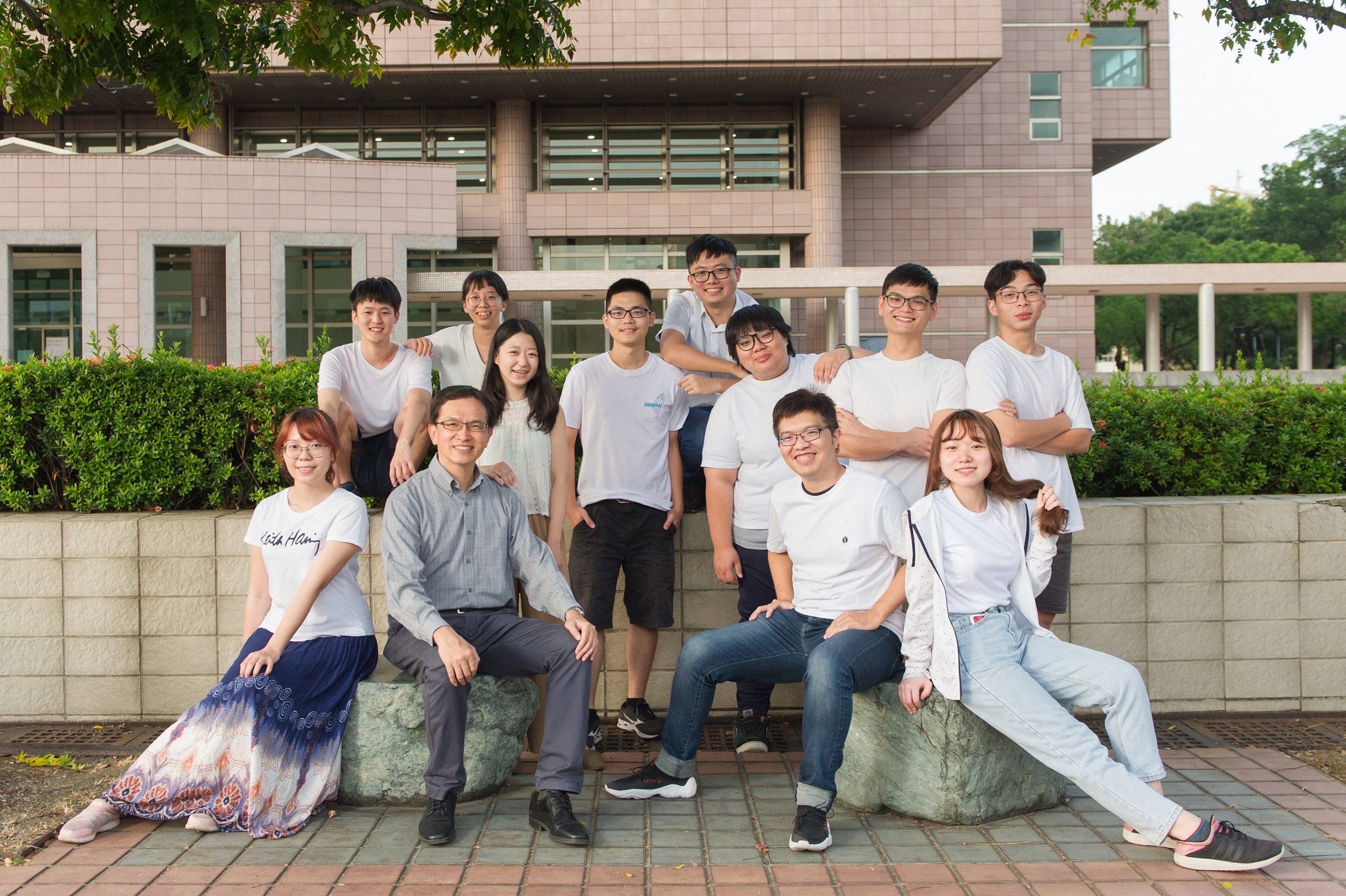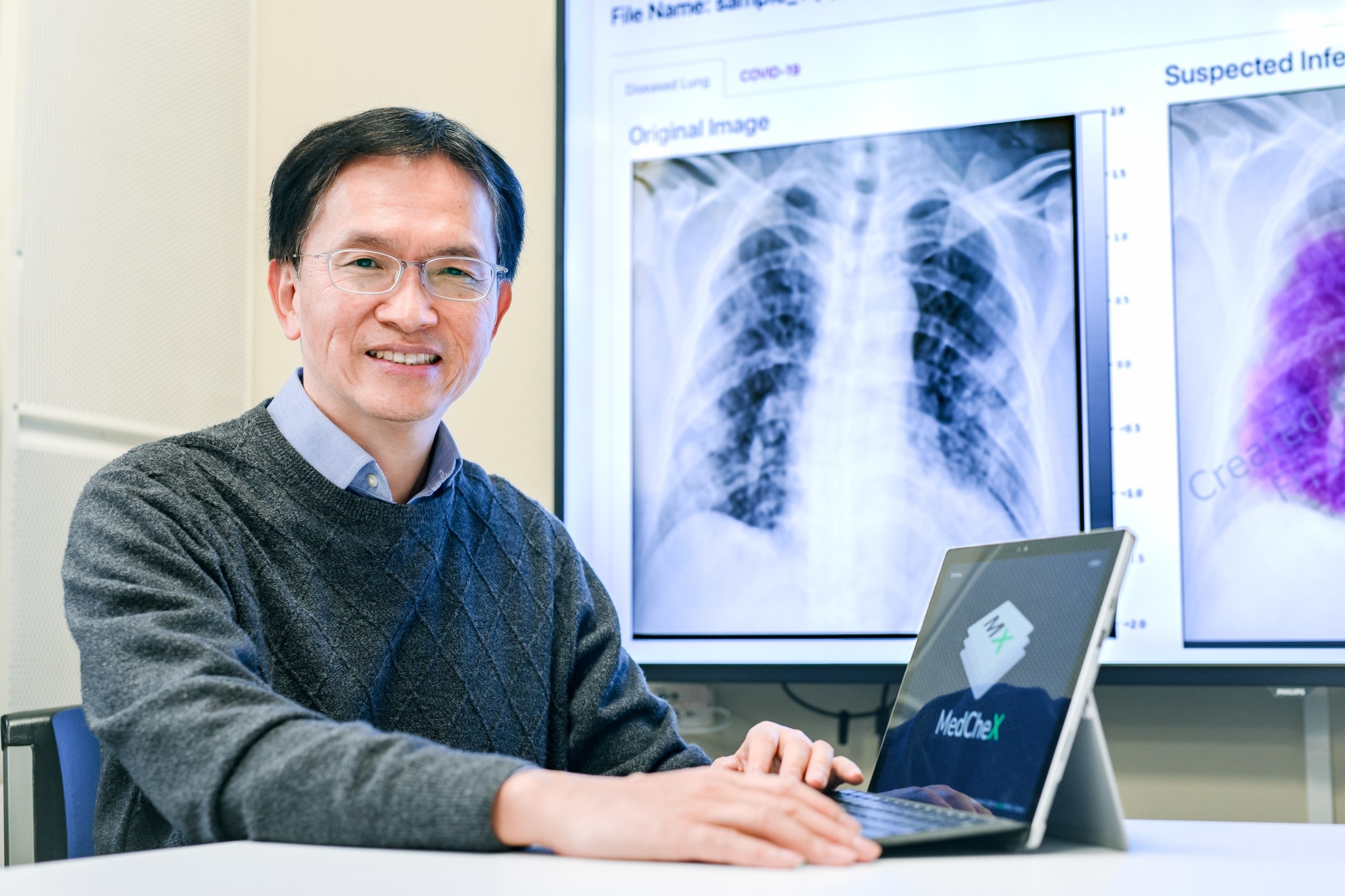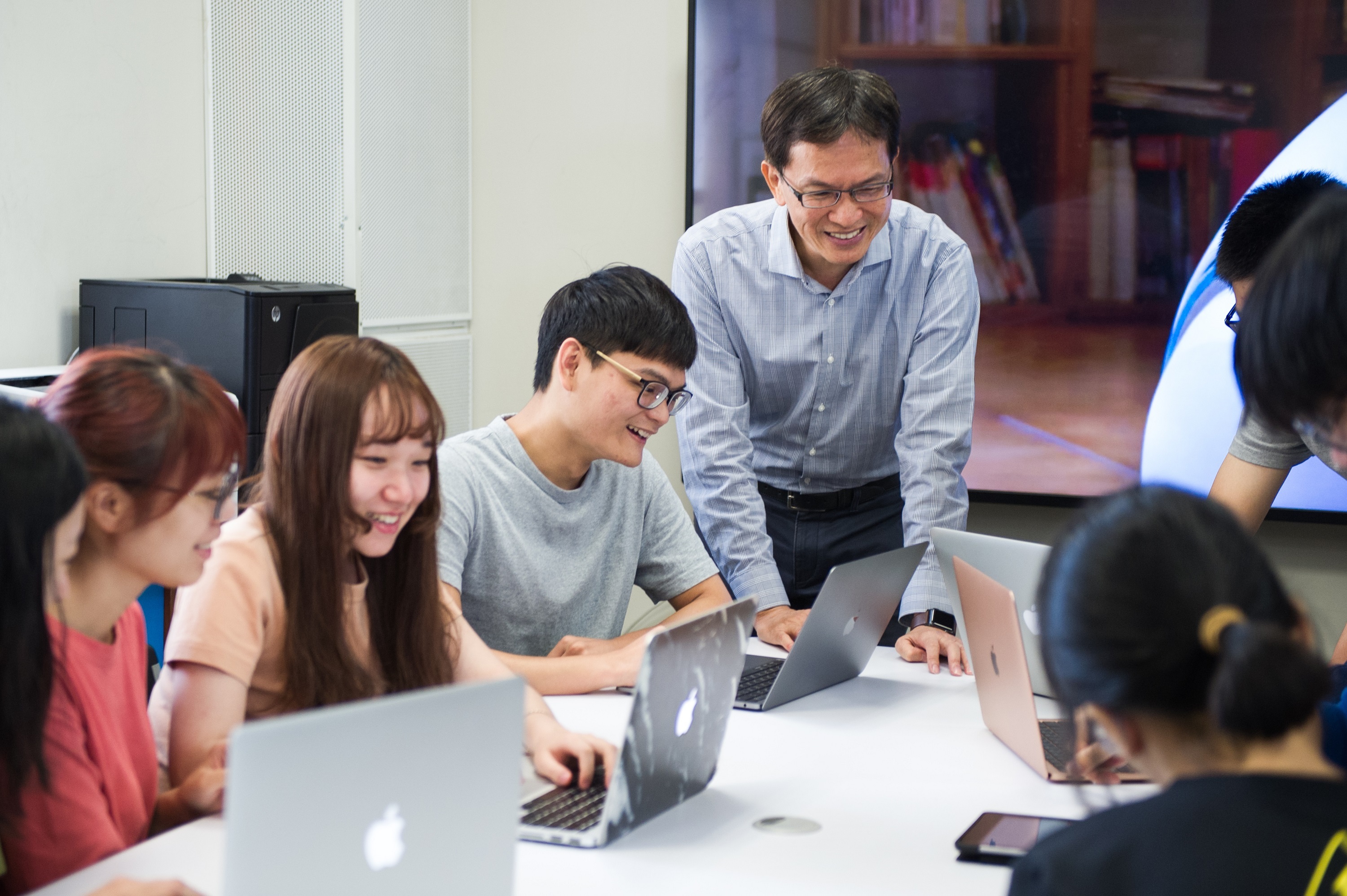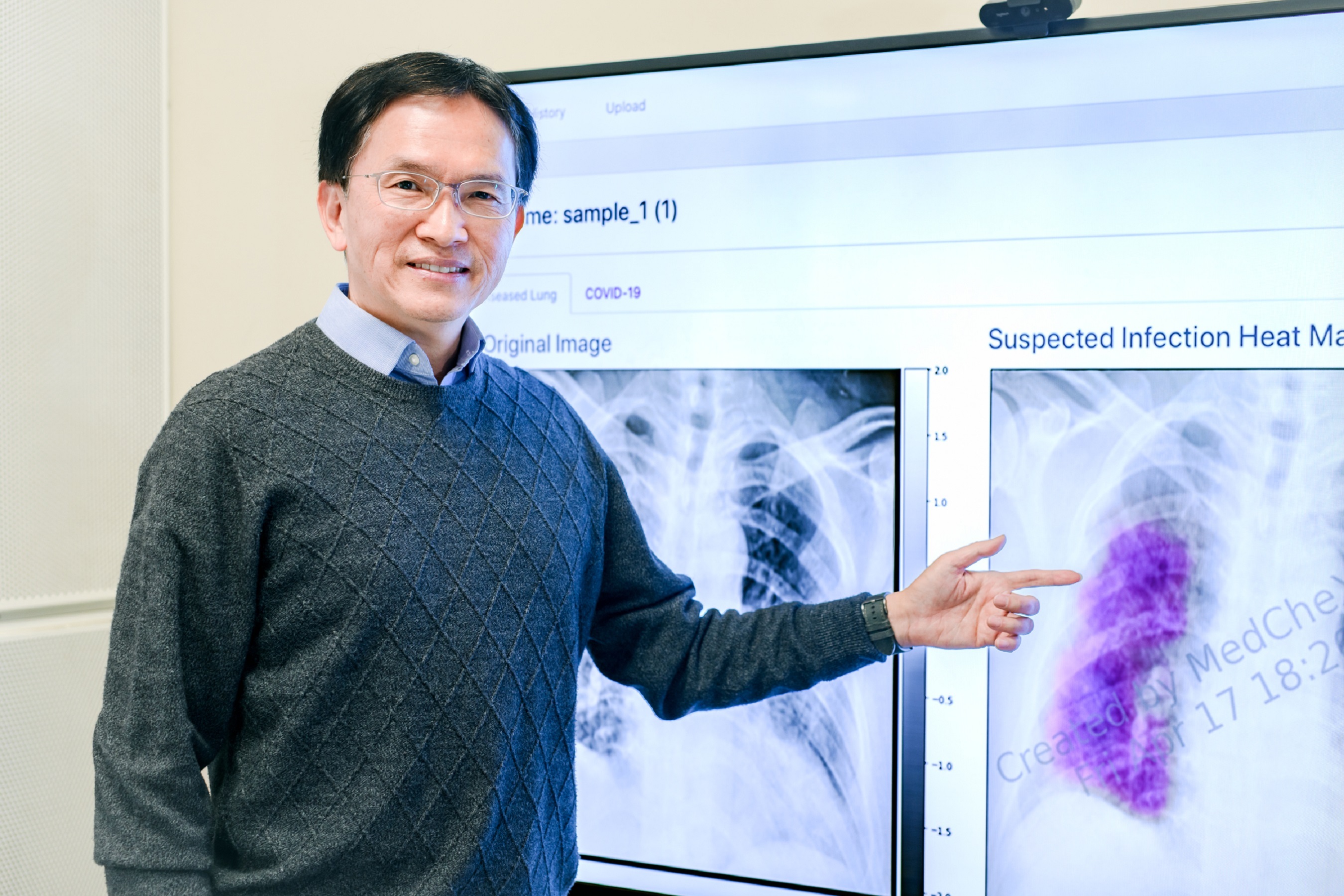NCKU Professor Recognized by UNESCO as Global Top 10 AI Solutions with COVID-19 Detection Technology
Written by Hsu Tsu-Yueh. Image credit to News Center.
Jung-Hsien Chiang, Professor at NCKU Department of Computer Science and Information Engineering, receives the Global Top 10 Outstanding Assessment in the UNESCO IRCAI solutions with “MedCheX: An e-Alert system for automatically detecting pneumonia from chest X-rays.” MedCheX is also the sole Asian project to be listed as top 10. MedCheX, kept accessible online and free-of-charge, benefits patients in areas with limited medical resources and is a model of sustainable development and social influences.

“MedCheX: An e-Alert system for automatically detecting pneumonia from chest X-rays” by NCKU professor Jung-Hsien Chiang was recognized as Global Top 10 AI Solutions by the UNESCO
Jung-Hsien Chiang has long been invested in finding AI applications in X-ray. The MedCheX system developed by his team can analyze chest X-rays using AI models, which can quickly detect possible COVID-19 cases, shortening the time needed for diagnosis. MedCheX may be especially beneficial for countries that do not have enough medical resources or radiologists. With this system, even in remote areas where there is a shortage of skilled doctors, the AI system can still quickly detect and prevent the spread of COVID-19.
“It is truly incredible to think that this system can be of so much help to so many countries.” Jung-Hsien Chiang expressed that after the MedCheX website was launched, the team was beyond glad to find out that MedCheX has gained users from a total of 61 countries across Europe, Asia, America, and Africa. This shows there are many places in need of medical resources, and the system can help alleviate their burden. In addition, the team found that the users come from large and small countries, whether those with access to advanced healthcare or those with more limited resources. The team expressed that each country develops at a different pace, and that the free-of-charge policy of MedCheX allows countries with different conditions to easily access this system, helping to reduce the impact brought about by the COVID-19 pandemic. Every individual and country should be treated equally, “no one is left behind,” the team stated.

MedCheX developed by Jung-Hsien Chiang’s team is able to detect possible COVID-19 infections in chest X-rays with AI model
Jung-Hsien Chiang revealed that the team has been approached by several international enterprises hoping to buy the technology of MedCheX after the team received an award in the COVID-19 Global Hackathon, a competition held by the World Health Organization looking for technological solutions to COVID-19. However, as the team discussed ways to make their technology accessible for more people, they came to the conclusion that keeping it free-of-charge and publicly accessible was the better way. “We decided to ‘donate’ MedChex and make it accessible for more people by launching it online and keeping it free-of-charge.” Jung-Hsien Chiang expressed that the team will continue to improve and optimize the system, and create greater positive value from Taiwan to the world.

The team decided to ‘donate’ MedChex and make it accessible for more people by launching it online and keeping it free-of-charge
Traditional X-ray interpretation is a complex, time-consuming, and costly process that requires experienced doctors to thoroughly read each X-ray image. This time-consuming process could even cause delay in diagnosis of diseases which further delays treatment. With MedCheX, however, all medical personnel around the world are given a new option. Via internet connection, the chest X-ray can be easily and quickly interpreted by the AI system, which helps overcome the problem of insufficient or uneven medical resources. Quick diagnosis of COVID-19 helps to effectively break the chain of infection. Especially for remote or poor areas where medical institutions are understaffed, the assistance provided by this AI system will greatly improve the speed of diagnosis and ensure more patients with severe conditions receive treatment in time. The positive influences the MedCheX brings to the world falls in line with the spirit stated in SDG 3 “Good Health and Well-being” and SDG 10 “Reduced Inequalities.”
As long as there is internet connection, all test stations, outpatient clinics, or hospitals can easily utilize MedCheX to help interpret a patient’s chest X-ray. After registration on the website, medical personnel around the world can upload X-ray images to the platform. The system immediately analyzes the images with AI model and marks possible regions that might indicate COVID-19 infections. The user will be able to view the processed image side-by-side with the original image.

MedCheX can immediately analyze chest X-ray images and marks possible regions that might indicate COVID-19 infections
The UNESCO called for AI submissions in 2021, aiming to scope and showcase solutions from around the world and contribute to the SDGs. Jung-Hsien Chiang’s team was first listed in the Global Top 100 assessment, and eventually was selected as one of the Global Top 10 Outstanding projects, becoming the sole Asian team among the 10 teams. The Top 100 list contains projects from 33 countries around the globe that were recognized as creative and successful by the judges. The final Top 10 teams come from Taiwan, Italy, United Kingdom, Germany, United States of America, Canada, and Netherlands. The application fields span across clean energy, food products and manufacturing, public service, internet, agriculture, finance, mining, labor, and health.
In addition, Jung-Hsien Chiang has begun a collaboration with the National Health Insurance Administration. The collaborative project focuses on developing an AI model to detect possible cancer with chest X-ray images, according to a press release from the NHI last December. Utilizing the NHI database of chest X-ray images of lung cancer patients, the project aims to build an AI model specifically used in detecting cancer. The NHI expressed that AI model will be highly beneficial in assisting preliminary screenings for lung cancer. The technology can assist physicians in interpreting a large number of chest X-rays, and can be widely used in areas with limited medical resources that do not possess computed tomography. The research results by Jung-Hsien Chiang are highly valuable, and it is hoped that this technology can be incorporated into related systems of NHI in the future in order to help with early lung cancer detection, which helps patients to receive treatment early.
Provider:
News Center
Date:
2022-03-01



